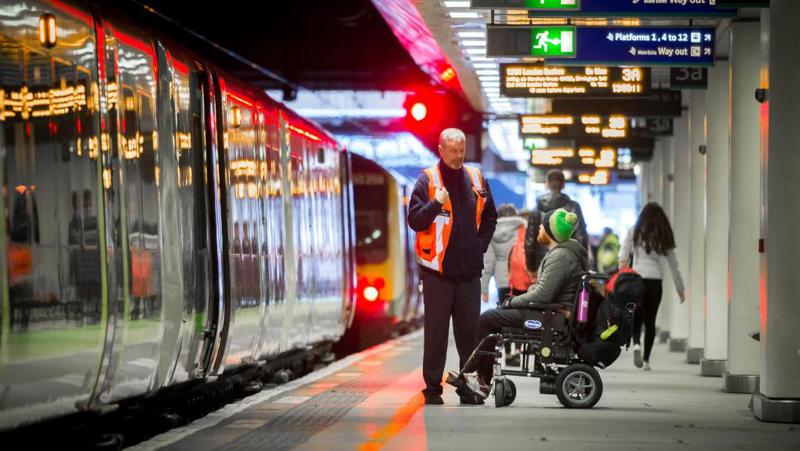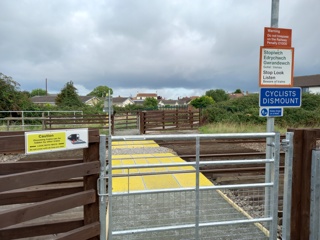
The Transport Select Committee Chair; Ruth Cadbury has said that there is a “distinct lack of urgency” by the Government in delivering the changes to accessibility on the transport network after it published its response to the Committee’s report.

The Transport Select Committee Chair; Ruth Cadbury has said that there is a “distinct lack of urgency” by the Government in delivering the changes to accessibility on the transport network after it published its response to the Committee’s report.
In the initial report, which was published in March, it said that there was widespread discrimination due to failures by operators as well as issues with the complaints process.
Responding, the Government has now pledged a review of the legislative framework relating to disabled people’s access to all transport services which it hopes will provide “universal and clear standards”. The review will be undertaken by the independent Law Commission.
The Committee had also said that there was a lack of any plan to improve accessibility across the transport network – calling for a strategy to be implemented within twelve months alongside a road map and timescales for delivery.
The DfT has stopped short of promising a new strategy, however. Rather, it has instead said accessibility would form part of its Integrated National Transport Strategy, which it plans to release later this year.
In its response, it said: “It is our intention that accessibility should be incorporated as a key area of focus within our overall approach to creating a transport network that is designed and built in a way that provides for seamless, joined up journeys that are coordinated to meet the needs of people and enable prosperous communities, and promote growth.”
This was criticised by Cadbury, who said: “We await the Integrated National Transport Strategy, and we are putting the Government on notice that we will be watching closely to see if they deliver for disabled travellers.”
Moving onto specific recommendations made for rail, the government again stopped short of setting “concrete timescales” for achieving independent accessibility across the network, which the committee had asked for the government to set out within 12 months, forming a key part of the initial report’s recommendations.
However, the DfT has countered in its response that it would be publishing its previously announced Accessibility Roadmap later this year.
The DfT did concede however that the roadmap would “not provide an immediate solution to these longstanding challenges. it will outline measures and initiatives to be undertaken ahead of the establishment of Great British Railways (GBR).”
When the report was published in March, it found that funding for accessibility upgrades across the rail network was hard to acquire, with a lack of consistency on planning and priorities by both DfT and Network Rail also criticised.
It also found that once funding was secured, the implementation of any upgrades was too slow. It therefore recommended the DfT adopt a different commissioning approach which it argued should focus on a rolling programme rather than individual station projects. The DfT countered that it was now looking at expanding the current Access for All scheme – ensuring it evolves into a rolling programme.
Cadbury said, “There are warm words and some promising signs in this response to our report”. However, the chair warned that the committee believed there was much more to be done, adding
“But taken together, there is a disappointing lack of urgency to deliver real, lasting progress and improve the daily lives of disabled people – to close the gap between rights and reality.
“Our inquiry heard so much evidence from disabled people about how their ability to work, access services and socialise is denied by transport services that fail to live up to the promises of equality legislation and policies. This can’t go on.”
A spokesperson for the Department for Transport said: “It’s clear that accessibility has been an afterthought in developing transport services. This government will change that so that disabled people, and others with accessibility needs, can travel easily and with dignity.
“The Transport Select Committee’s report was timely and will help inform work that’s already underway to put accessibility at the heart of the transport network. That’s why we’re working with the Law Commission to explore how the current legislative framework could be reviewed and are already developing a new Integrated National Transport Strategy.”
Login to continue reading
Or register with RAIL to keep up-to-date with the latest news, insight and opinion.


















Login to comment
Comments
No comments have been made yet.